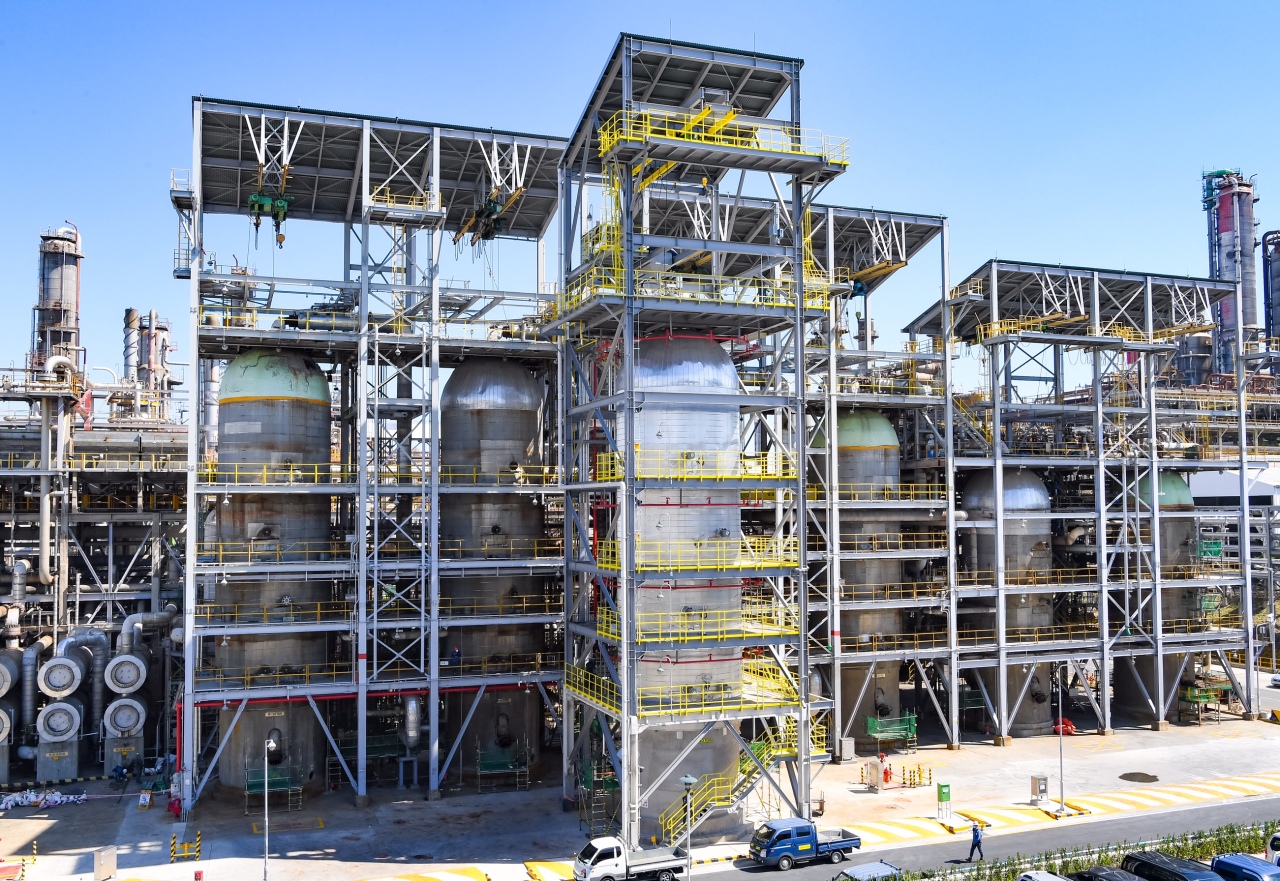S-Oil upgrades Ulsan plant to curb sulfur and harmful vapor
 |
|
S-Oil’s residue hydro-desulfurization unit at Ulsan plant. (S-Oil)
|
S-Oil said Tuesday it has completed the upgrade of its Ulsan petrochemical plant to prevent sulfur and harmful vapor from being emitted into the air as part of an effort to accelerate the company’s environmental, social and governance efforts.
According to the refinery, it has injected some 73 billion won ($64.9 million) into the expansion of its residue hydro-desulfurization capacity and the construction of a vapor combustion unit.
The residue hydro-desulfurization unit, or RHDS unit, removes impurities inside high-sulfur residue oil by adding hydrogen as a catalyst to produce light fuels such as ultra-low sulfur diesel and naphtha. Simply put, the hydrogen catalyst reacts with the high-sulfur residue oil and removes carbon. The expansion allows the RHDS facility to desulfurize 40,000 barrels of residue oil per day, which is 18 percent greater than the previous capacity of 34,000 barrels. The RHDS went operational since Saturday.
“We pushed forward with investment in the RHDS as part of our effort to meet growing demand for low-sulfur marine fuel amid International Maritime Organization’s tightening sulfur rules and to further commit ourselves to ESG management,” an S-Oil official said.
Meanwhile, the vapor combustion unit, or VCU, began its operation earlier this month. The VCU prevents hazardous substances from being discharged into the air by capturing and completely combusting vapors emitted from storage tanks. The VCU manages 19 storage tanks at S-Oil’s Ulsan plant.
By Kim Byung-wook (kbw@heraldcorp.com) (The Korea Herald)
